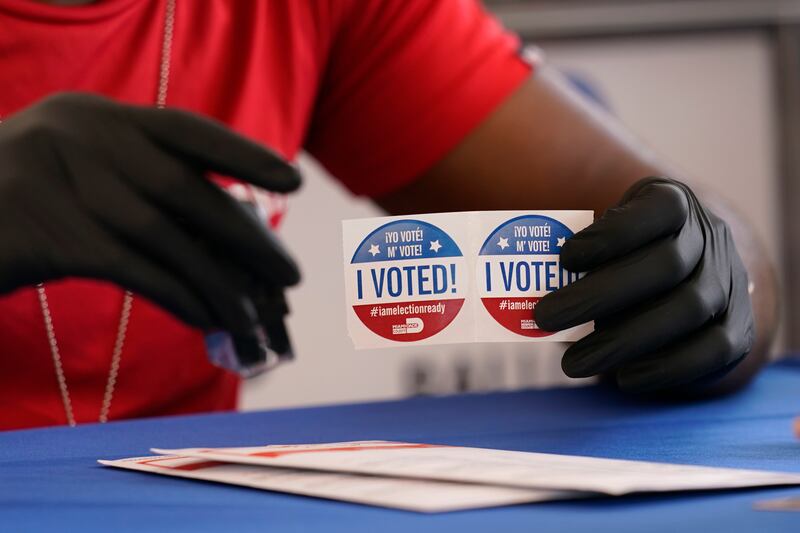Elections are the lifeblood of our local, state and national governments. Right now, citizens are making ballot box decisions about candidates for those offices. For months we have seen debate and discussion, ads and advocacy, policies and platforms, about various ideas and candidates. Conversations between candidates and among people in homes, workplaces, neighborhoods, churches, on social media and in all settings across the country have been especially intense.
It’s critical that people be actively involved voters in choosing who leads our local, state and national governments. Pericles told us how relevant our elections are: “Just because you don’t take an interest in politics doesn’t mean that politics will not take an interest in you.” Similarly, Plato’s statement that “the price of apathy toward public affairs is to be ruled by evil men” has been proven true over and over again. As citizens, we must be involved in civic affairs and study the issues and candidates that will be on the ballot. Whether and how the decisions of our elected leaders affect our lives isn’t something we can choose. The only thing we can do is make the best choice about who those elected leaders are.
So, how are citizens to decide for whom to vote? What guidelines should they keep in mind as they consider the candidates?
Scripture from my faith addresses directly the question of who to vote for. Doctrine and Covenants 98:9-10 states, “… when the wicked rule the people mourn. Wherefore, honest men and wise men should be sought for diligently, and good men and wise men ye should observe to uphold(.)” In identifying church policies and guidelines in connection with political and civic activity, Section 38.8.34 of the general handbook of instructions from The Church of Jesus Christ of Latter-day Saints encourages those of my faith to vote for individuals we believe “will act with integrity and sound judgment” as well as individuals who are “honest, good, and wise.”
Working as a public official requires a dedication to serving the public, rather than serving personal interests. In my time acting as both a voter and an elected representative, I’ve seen the need for public officials to set aside selfish concerns and serve others. Supporting candidates of good character, people with integrity, means voting for people who are committed to putting the welfare of their constituents ahead of their own self-interest.
Working as a public official requires a dedication to serving the public, rather than serving personal interests.
For example, we hear a lot these days about the need to protect religious liberty. But we can feel more confident that a candidate is worthy of our support when their commitment to protecting religious liberty involves more than simply speaking up to defend members of their own faith tradition. Worthy candidates for public office look out for the interests of the community as a whole. They are ready to sacrifice their own time and energy to pursue policies that advance the well-being of the most people, now and over a longer period of time, rather than simply being zealous about protecting the immediate concerns of the members of their own religious, ethnic, political or socio-economic tribe.
Worthy candidates are willing to be accountable for their decisions, to not just take credit for their successes but to accept responsibility when they err. They desire to serve others because they recognize that more satisfaction comes from strengthening the entire community than from looking out primarily for individual benefit.
Candidates worth supporting are people who put other’s interests before their own. This year, make sure you vote for “honest, good, and wise” candidates to lead us into the future.
House Minority Leader Brian S. King, D-Salt Lake City, serves in the Utah Legislature as representative of District 28.

